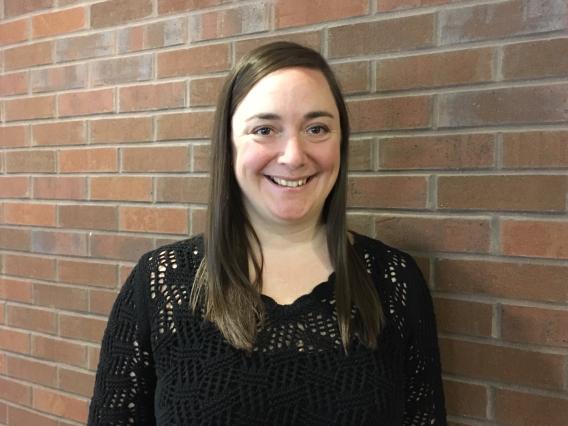Food insecurity affects young people in unique ways, according to new research from Laura Hooper, a University of Minnesota doctoral candidate and scholar in CTSI’s Translational Research and Career Training Program (TRACT) TL1 program.
Little was known about the topic when Hooper joined the program in 2020, but the findings she unearthed since then are capturing the attention of clinicians. Her work — published in the Journal of Adolescent Health — showed that food insecurity during adolescence is linked to disordered eating and obesity in young adulthood.
A path to success
Hooper credits the CTSI TL1 program with giving her critical research opportunities and skills, saying:
“CTSI’s TL1 program made my research possible. I could commit 100% of my time to conducting the research, including taking time to effectively communicate and disseminate my research findings to clinical audiences.”
The two-year program gives pre- and post- doctoral scholars a mentored research experience, an individualized curriculum, and professional development activities on key topics related to translational research, which refers to projects that put scientific advances to real-world use, like developing new drugs or treatment approaches.
“I developed skills I’ll use for the rest of my career,” says Hooper. “I can now better write manuscripts for peer-reviewed journals, plus I loved learning how to effectively communicate my work to lay audiences.”

A reason to research
The impetus for Hooper’s research grew out of her experience as a pediatric clinician at Seattle Children’s Hospital. Hooper is a registered dietician and also has an MS degree in nutritional science.
“I saw many of my adolescent patients struggling with food insecurity, disordered eating, and obesity, and I began to notice how each issue seemed to exacerbate the other,” she said. “But when I went to the scientific literature to see what was being studied, I couldn't find anything that focused on all three issues in adolescents. So, I decided to find out.”
Traditionally, research and treatments tend to view food insecurity, weight status, and eating disorders as separate issues, Hooper said. By showing how they are connected, she hopes to arm clinicians and policymakers with tools that better address the underlying causes of these concerns.
“This age group may be affected by food insecurity in unique ways, especially given the tremendous changes in the body and the high energy and nutrient needs required to support their rapid growth and development,” she said. “Disordered eating and obesity are two adverse health outcomes potentially linked with food insecurity.”
Driving change
To Hooper, sharing her findings with clinicians was one of the highlights of her CTSI TL1 experience.
“Presenting my public health research findings to clinicians has been so rewarding,” says Hooper. “My research resonates with them and our conversations remind me why this work is so important.”
Some of the clinicians Hooper met intend to share Hooper’s work with colleagues who are more inclined to use a personal responsibility approach to treatment or reduce complex health problems like obesity to a single solution.
“This study shows it’s not so simple,” explains Hooper. “There are complex ways that food access, equity, and body image concerns affect adolescent health. This research study makes the case for a more comprehensive, blame-free approach to supporting adolescent wellbeing.”
This research was supported by the National Institutes of Health’s National Center for Advancing Translational Sciences, grant UL1TR002494. The content is solely the responsibility of the authors and does not necessarily represent the official views of the National Institutes of Health’s National Center for Advancing Translational Sciences.
